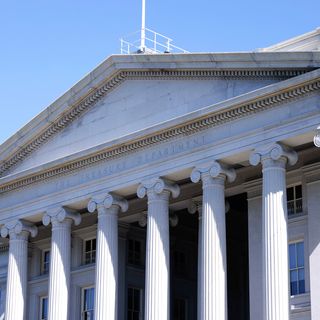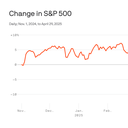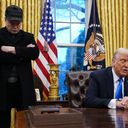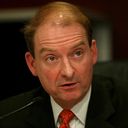Moody's cuts U.S. credit rating on growing debt burden
Moody's Ratings cut its credit rating on the United States by one notch on Friday, citing an increase in government debt and interest payment ratios.
Why it matters: The Moody's downgrade to Aa1 removes the U.S. government's last remaining triple-A credit rating, diminishing its status as the world's highest-quality sovereign borrower.
What they're saying: "This one-notch downgrade on our 21-notch rating scale reflects the increase over more than a decade in government debt and interest payment ratios to levels that are significantly higher than similarly rated sovereigns," Moody's said in the statement.
- "Successive US administrations and Congress have failed to agree on measures to reverse the trend of large annual fiscal deficits and growing interest costs."
Zoom in: Moody's cast doubt on whether current U.S. fiscal proposals will achieve material long-term reductions in mandatory spending and deficits.
- It said it expects deficits to rise over the next decade, driven by rising entitlement spending and little change to government revenue.
By the numbers: Moody's said it projects mandatory spending, including interest payment, to rise to around 78% of total U.S. spending by 2035, from about 73% this year.
- If the 2017 Tax Cuts and Jobs Act is extended, which Moody's called its "base case," it expects around $4 trillion to be added to the federal fiscal primary deficit over the next decade.
- It sees federal deficits widening close to 9% of GDP by 2035, up from 6.4% in 2024, and the federal debt burden to hit around 134% of GDP by 2035, compared to 98% last year.
Between the lines: In noting its decision to assign a stable outlook on its rating, Moody's seemed to take a jab at recent actions and comments from the Trump administration, including the President's comments regarding Fed chair Jerome Powell.
- The ratings agency noted the U.S.'s "long history of very effective monetary policy led by an independent Federal Reserve."
- It also cited "institutional features" within the U.S. government structure, including "the constitutional separation of powers" among the three branches of government "that contributes to policy effectiveness over time and is relatively insensitive to events over a short period."
- "While these institutional arrangements can be tested at times, we expect them to remain strong and resilient," Moody's said.
For the record: "The Trump administration and Republicans are focused on fixing Biden's mess by slashing the waste, fraud, and abuse in government and passing The One, Big, Beautiful Bill to get our house back in order. If Moody's had any credibility, they would not have stayed silent as the fiscal disaster of the past four years unfolded," White House spokesman Kush Desai said in a statement.
Flashback: S&P Global Ratings removed its triple-A credit rating on the U.S. in 2011, while Fitch Ratings did the same in 2023.
Courtenay Brown contributed.
Editor's note: This story has been updated with White House reactions.









